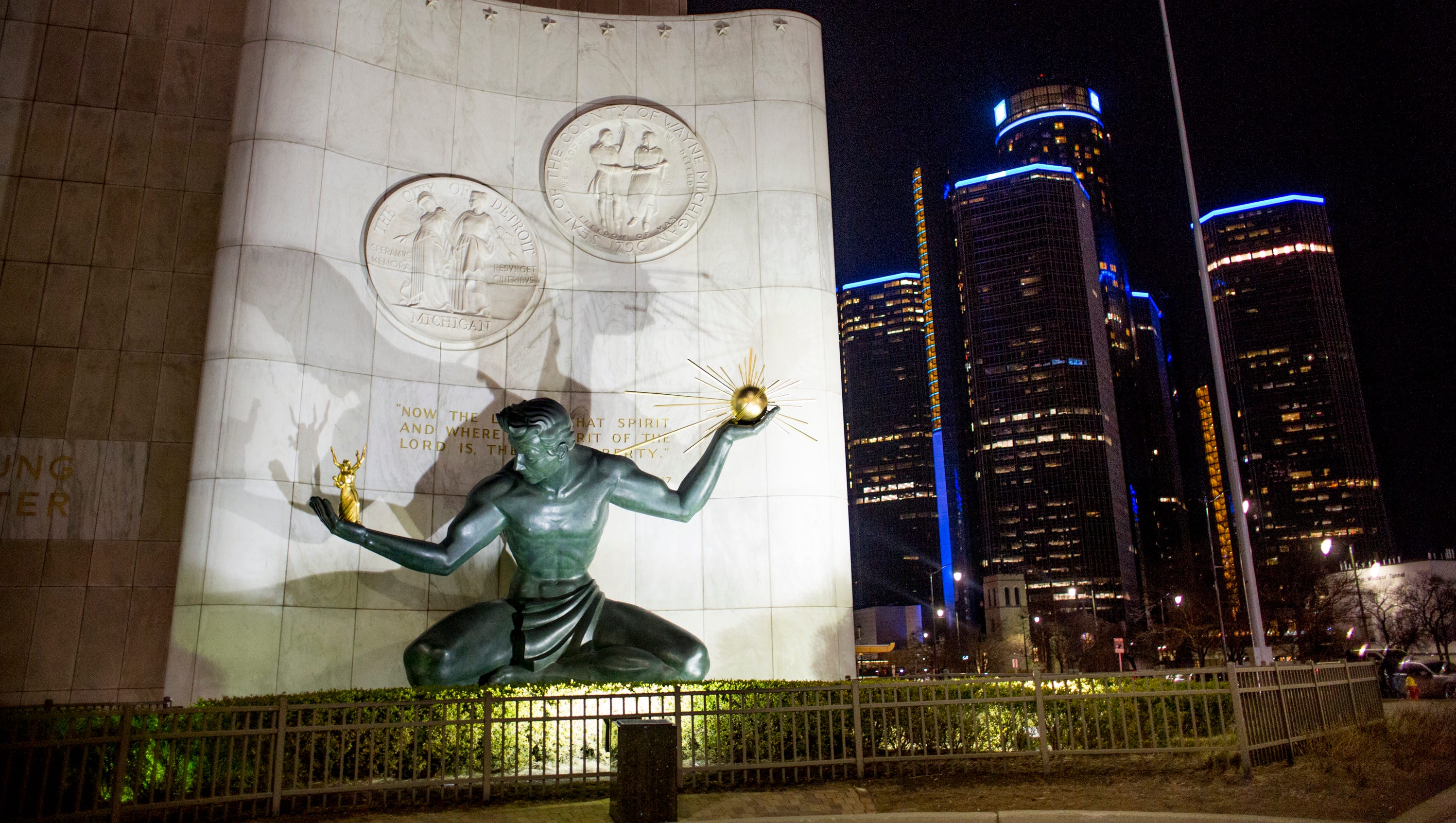Executing Aaron
 Robert Snell
Robert Snell
Editor's note: Detroit News reporter Robert Snell spent more than a year investigating Detroit’s gang wars and the Justice Department’s attempts to topple the Seven Mile Bloods. This is the eighth and final chapter in the "Death by Instagram" series.
A recent shooting appears to have rekindled the war between the Seven Mile Bloods and rival gangs.
On Sept. 24, prosecutors say alleged Seven Mile Bloods member Aaron Hayes was sitting on a porch outside an east side home. Hayes, 27, was a free man after spending almost a decade in a Michigan state prison for manslaughter.

Aaron Hayes (Photo: Michigan Department of Corrections)
Two masked men approached the porch.
“The two masked men ran up and executed Aaron Hayes with two AR-15s and shot him dead in the backyard of the house,” said Graveline, the federal prosecutor.
Turns out the teen Hayes killed 12 years ago was a member of the Hustle Boys, the Seven Mile Bloods’ rival gang, prosecutors say.
FBI agents believe there was a bounty on Hayes’ head.
“Now it appears that these two gangs may well be at it again,” Graveline said.
Shooting Peezy
During the gang war, Seven Mile Bloods hunted for one rival who dodged a bullet — until the trial started.
That rival is rapper Phillip Peaks, aka “Team Eastside Peezy.” Peaks, 29, is under indictment alongside 10 members and associates of the rival 6 Mile Chedda Grove gang, according to court records and trial testimony.
His photo was included on an Instagram hit list posted during the gang war, according to the government.

Phillip Peaks, aka "Team Eastside Peezy." (Video: YouTube)
Testimony showed accused Seven Mile Bloods leader Billy Arnold was hunting for Peaks in 2015 but couldn’t find him, including at a Southfield pool party in July 2015.
Instead, Arnold shot and paralyzed the rapper’s friend, Ralpheal Carter, according to the government.
“Billy Arnold was out for revenge that night, and he found the first person he could who was associated with those rivals...,” Assistant U.S. Attorney Christopher Graveline said.
Jurors were shown social media posts and Peaks’ photo multiple times during the first days of the Seven Mile Bloods trial, including Jan. 31. One post disparaged slain Seven Mile Bloods leader Devon "Block" McClure with an obscene hashtag.

Devon "Block" McClure (Video: YouTube)
The post was published on May 9, 2015, eight days after McClure's unsolved killing.
On Feb. 4, four days after Peaks’ photo and related Instagram posts were featured during the Seven Mile Bloods trial, Peaks was shot and wounded in Warren.
Peaks handed over cash during an apparent robbery at a gas station and was shot multiple times, according to police.
The shooting of “Team Eastside Peezy” is unsolved.
“We are looking at the possibility it could be related to the indictments,” Warren Police Commissioner Bill Dwyer said.
Peaks’ lawyer Vincent Toussaint thinks the shooting is unrelated to the Seven Mile Bloods.
“I think the timing of it was coincidental,” Toussaint told The News.
The Seven Mile Bloods case likely will have a lasting impact on gang activity in Detroit. Gangsters will learn to avoid documenting crime on social media, said Carl Taylor, a Michigan State University sociology professor who has studied Detroit’s gang culture.
“Rest assured guys on the street right now are taking notes...,” Taylor said. “The strong will survive and will always find a way.”
Rogers smiled March 16 as he left federal detention for the first time in "two years and 15 days." Rogers had a stack of trial suits slung over his right shoulder as he contemplated life as a free man.
He wants to publish a fictional novel he wrote in prison about three young ladies in inner city Detroit.
His music career and YouTube videos are over.
“I’m not doing that music s--- ever again,” Rogers said.
Michael Rogers talks outside U.S. District Court in Detroit after being acquitted in the Seven Mile Bloods racketeering conspiracy case on March 16, 2018. (Video: John Greilick/The Detroit News)